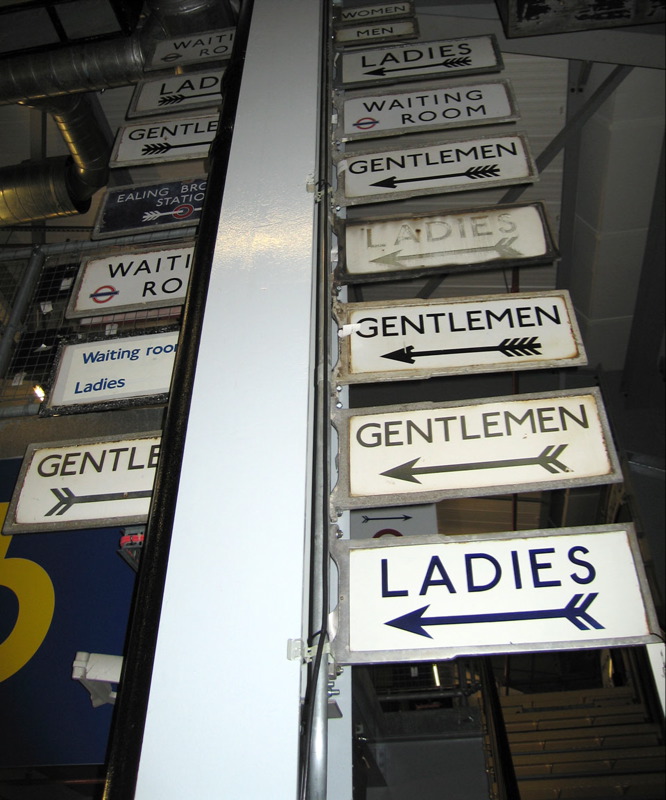
I am not being sexist about this. It is rather the question of what the old saying suggests: "What is sauce for the goose is sauce for the gander". So why is the most foul-mouthed teenage girl often described as a "lady"? Equally, why should a female driver be a "lady"? Or: "These men drivers!". Why not "postgentleman" if she is "postlady"...? Or even that mixed-up phrase "cleaning-lady"! This is a madness of today's society.
And here is an odd thought: A police officer has generally to refer to "this lady" or this "this gentleman" in formal conversation with or about them. But nobody else would have to do so in this age of so-called correctness.
So let us rid ourselves of the "ladies". Call a spade a spade and send them off with the "gentlemen" for special occasions, or if one of them has deserved it. So a "lady" should only be used formally or as a compliment. Once (and once only, I fear) I was described as a "gentleman" to my face. That was a lovely compliment and I was on a high for a week! Thereafter, the memory remains as a pleasant glow of satisfaction...
The whole point about all this is that the use of "lady" seems to denigrate the honest-to-goodness term "woman". Especially if, as an acquaintance once commented, that he liked to hedge his bets! My Oxford dictionary describes a number of alternatives which seem right, but unfortunately for the fairer sex there are many more epithets which spring to mind like "little w-", "old w-", "other w-", "scarlet w-", or "char w-" -- for instance.
This begs the question of whether today's society - which always assumes the worst of everything - makes use of "woman" as being a rather nasty term. Thinking perhaps that "lady" conjures up a picture of affluence, beauty, good taste or friendliness, whereas the opposite may well be the fact on closer acquaintance!....
The alternatives in the dictionary mention "womankind" in general, while "womenfolk" refers to family. "Womanhood", meaning "female maturity, womanly instinct" is better. But how about "womanly"?, meaning "having or showing the qualities befitting a woman, not masculine or girlish. (womanly modesty, compassion, tact, etc)".
That's more like it! I can live with that.
So lets have a lot less of the lady and a lot more of the real woman.